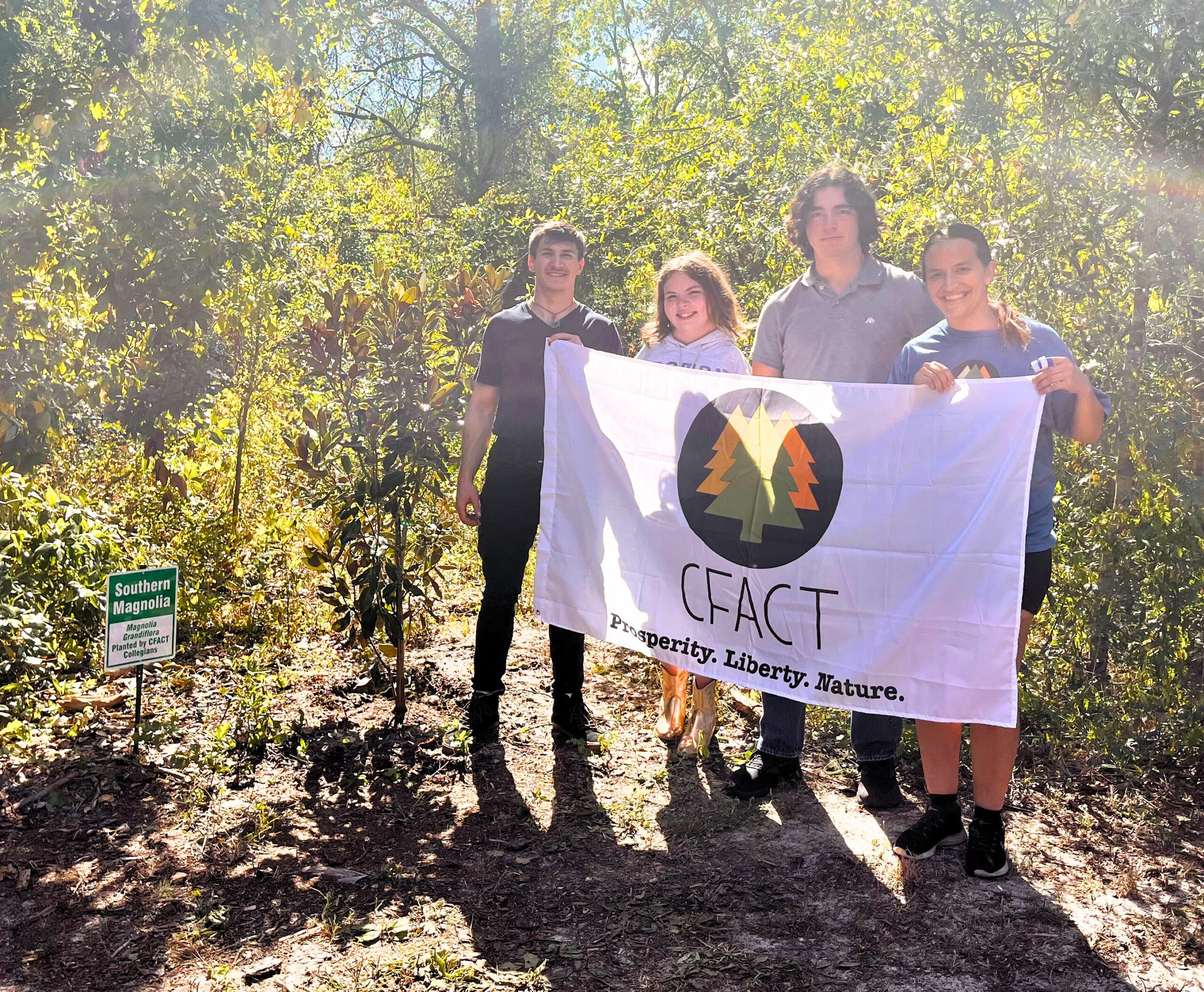On the bright morning of October 14, students at the University of South Florida gathered at the campus botanical gardens to celebrate conservation in action. Led by CFACT Collegians Evan Campagna and Stephanie Ross, more than twenty students and a campus groundskeeper took part in planting a Southern Magnolia (Magnolia grandiflora)—a tree native to the American South and a proud emblem of strength, beauty, and endurance.
The planting wasn’t just a lesson in horticulture; it was a living demonstration of free-market environmentalism at work. With shovels in hand, students dug the hole, set the tree, and packed it in with care before placing a commemorative plaque at its base reading “Planted by CFACT Collegians.” Alongside the planting, a CFACT table offered informational flyers and stickers to interested students explaining the importance of native flora in preserving America’s natural biomes.
“The CFACT chapter at USF has brought awareness to free-market environmentalism by planting an indigenous tree in our school’s botanical garden,” Evan shared. “We demonstrated that voluntary action and community involvement are powerful tools for conservation.”
Stephanie echoed that sentiment, noting the day’s impact extended beyond the planting itself. Curious students stopped to ask questions, several expressed interest in joining the chapter, and even the owner of the botanical gardens offered to host CFACT at future events such as the local farmer’s market. Two days later, the group returned to mount the metal plaque, officially marking the magnolia’s placement by CFACT Collegians in the garden’s landscape.
Native to the southeastern United States, the Southern Magnolia provides habitat and food for pollinators and songbirds while contributing to soil stability and air quality. Its glossy evergreen leaves and large white blossoms make it one of the region’s most beloved trees—an enduring reminder that genuine conservation begins with small, voluntary acts of stewardship.
This event was part of CFACT’s Conserve & Preserve Campaign, which encourages students to practice hands-on conservation through native planting, habitat restoration, and regenerative land management. By working with their peers and local community partners, Evan and Stephanie demonstrated how stewardship rooted in freedom, personal responsibility, and private initiative can flourish—proving once again that real environmental progress grows from grassroots action, not government mandates.





The U.S. Fish and Wildlife Service (FWS) recently proposed listing the Southern Hognose Snake (Heterodon...